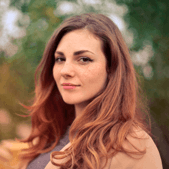I recently attended the sixth Shared Value Summit APAC – an annual event that brings together business leaders who seek to employ a business strategy founded in the concept that the most effective way to compete and succeed is by actively improving the social and environmental conditions that the company exists within.
A persistent conversation thread throughout the Summit was that, in light of recent events, the Shared Value principles have never been more relevant or important. For the sake of the planet and humanity, we need to collectively find ways to bring the world back into balance, and the business sector has a critical role to play, alongside government and not-for-profits.
As 2020 unfurls, we are being reminded again and again of the complex and interconnected nature of our world. The devastating bushfires which heralded in the new decade were a defining moment. It felt inconceivable at the time that the news cycle could move on from such a momentous event. Of course, COVID-19 was just around the corner. And on top of the environmental disaster and the health crisis, societal tensions have come to the fore through the Black Lives Matter movement. The commentators are quick to rightfully remind us that none of these events are isolated, but rather are symptomatic of what our world has become. A world we have created.
Responding fast and slow
My key insight from the Summit came from a panel discussion titled Agility is the New Stability, which included Mark Kramer – co-author of the seminal Creating Shared Value article (Harvard Business Review, 2011).
Mark highlighted the differences between a rapid crisis (like a natural disaster) that stimulates the fight or flight response of our reptilian brain, versus a slow crisis (like climate change) that requires changes to how we operate our ‘business as usual’. This framing applied an organisational lens to the work of Daniel Kaheman, who in his book explored the differences between thinking fast and slow.
The panelists shared that they are hearing from business leaders about the galvanising impact the COVID-19 crisis has had on their organisations. It has provided an acute sense of purpose and alignment, and these leaders express a hope that this energy somehow persists beyond the crisis.
I think many of us can relate to this. The urgency, the adrenaline, and the novelty of our newfound working situations have spawned many benefits, including a heightened sense of connection amongst people. There is nothing like an intense battle or challenge to bring a team together.
But Mark’s point was that slow crises – like climate change, social inequality, and indeed COVID-19 – don’t just require a short burst of activity. They require deep, patient, structural changes to how we do ‘business as usual’. And of course, that is going to be harder to implement than a quick fix.
So what we need is a way to bring some of the urgency and focus that a rapid crisis commands to the very important and slowly unfolding crises which we must overcome.
A tool for change
A personal highlight of the Summit was the showcasing of the Shared Value Action Plan Framework which DiUS recently developed in partnership with the Shared Value Project. It guides practitioners through the process of shaping a new initiative, communicating the strategic linkages, and importantly, validating assumptions through a test and learn approach.
The canvas is supported by a guide which links off to resources from several of my favourite authors in the field of innovation including Alex Osterwalder (Business Model Canvas), Barry O’Reilly (Lean Enterprise) and David Bland (Testing Business Ideas).


This video provides a brief overview of the framework
While no tool alone provides a silver bullet, my hope is that this resource can help organisations achieve some of the focus which Mark Kramer highlighted is required when tackling big challenges.
At DiUS, we work with organisations large and small to help them innovate. For cash strapped startups, the learning cycles are rapid by way of necessity and survival – there are no distractions or internal red tape to slow them down, lest their financial runway runs out before they achieve profitability.
Conversely, something we frequently observe in larger organisations are many barriers to innovation. In response, we find it effective to introduce artificial constraints in order to create a sense of urgency, focus and speed. This often includes narrowing down the scope of an experiment to hone in on a single customer cohort, and a narrow feature set or offering – all with the aim of getting something into a customer’s hands within days or weeks, rather than months.
The goal is to start the cycle of hearing feedback, adjusting course in response to the learnings, and then expanding out the process incrementally and iteratively. As each initiative demonstrates potential through validated learnings, further investment can be unlocked to take it to the next level.
An opportunity to spearhead innovation
COVID-19 has provided insight into how quickly innovation and change can occur when it has to. An example is in the higher education sector where the establishment of online and remote learning options has been in the works for many years within most institutions. In the face of the crisis, the transition occurred within weeks.
Likewise in the context of many businesses, we have been forced to try new ways of working and collaborating remotely. So we try something, see how it goes, and then either persist if it works, or adjust if it doesn’t. A difference I have observed in some organisations during this period is that due to the crisis there are less barriers to trying new things, and there is less fear and judgment about things not working out perfectly.
These are exactly the conditions which a culture of innovation requires to thrive. So hopefully these insights and learnings set the stage for a period of sustained renewal and reinvention in our organisations.
It has been a great experience to collaborate with The Shared Value Project in creating the Action Plan Framework, and we hope that it will serve as a valuable tool for their member organisations – all of whom want to see business being a force for positive change. If there was ever any doubt, 2020 has reminded us that we all have our part to play.





